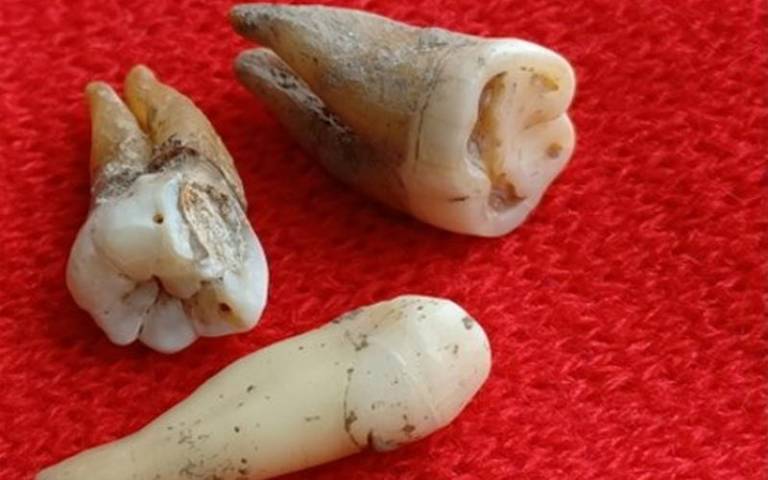New study finds that ancient teeth could preserve antibodies for hundreds of years
15 August 2023
Prof. Rahman & Dr. McDonnell, Department of Inflammation, collaborate on a new study to find that teeth could be capable of preserving antibodies for hundreds of years, allowing scientists to investigate the history of infectious human diseases

Teeth could be capable of preserving antibodies for hundreds of years, allowing scientists to investigate the history of infectious human diseases, a new study has found.
In the new paper, published by iScience, antibodies extracted from 800 year-old medieval human teeth were found to be stable and still able to recognise viral proteins.
The study, led by Professor Robert Layfield and research technician Barry Shaw from the School of Life Sciences, University of Nottingham, in collaboration with Professor Anisur Rahman and Dr Thomas McDonnell from the Division of Medicine at University College London, expands the study of ancient proteins, referred to as palaeoproteomics, potentially allowing experts to analyse how human antibody responses developed through history.
This science has previously been applied by the Nottingham team to the analysis of other disease-associated proteins recovered from archaeological human bones and teeth, from Norton Priory in Cheshire, to allow identification of an unusual ancient form of the skeletal disorder Paget’s disease.
Professor Layfield explained: “In discovery science we come to expect the unexpected, but the realisation that intact, functional antibodies can be purified from skeletal remains in the archaeological record was quite astonishing. Some ancient proteins were known to be stable, but these tend to be ‘structural’ proteins such as collagens and keratins, that are pretty inert.”
Professor Rahman added: “Antibodies are different because we are able to test whether they can still do their job of recognising viruses or bacteria even after hundreds of years. In this case we found that antibodies from medieval teeth were able to recognise Epstein-Barr virus, which causes glandular fever. In future it could be possible to look at how antibodies from ancient specimens react to diseases present during those periods, such as the Black Death.
Image provided by the University of Nottingham
- Professor Anisur Rahman, Department of Inflammation, Division of Medicine
- Dr Thomas McDonnell, Department of Inflammation, Division of Medicine
- News - Teeth could preserve antibodies hundreds of years old, study finds - University of Nottingham
 Close
Close

